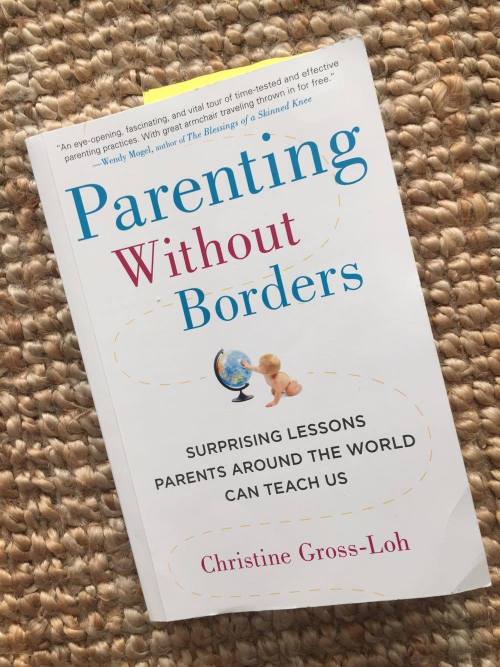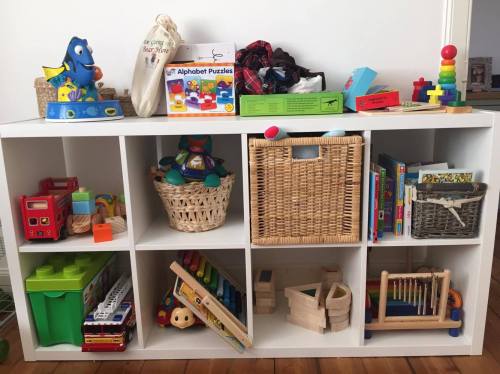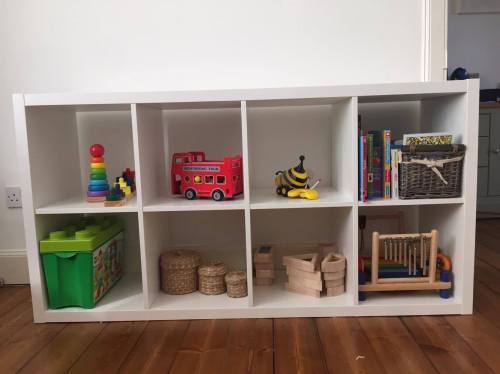
I started this blog last summer, when I was a pregnant parent of one as a way to document life as a Mama and Sonnie’s journey through childhood. The reality is, with a return to teaching and being pregnant with Brin, I was just too exhausted to keep it up, especially without compromising time actually spent present and engrossed in Sonnie’s development. That was something I obviously wasn’t willing to do.
That being said, now that I’m into the swing of things with two babes, I found some time (nap time/ bed times/ night feeds) to start reading again. That’s when I stumbled across the most thought-provoking, eye-opening parenting book I have read and I’m only 100 pages in… Parenting Without Borders by Christine Gross-Loh has made me question and analyse the way in which I want to raise my children so much so that I wish I had started reading it sooner!
It has made me further question some of the choices we (Robs and I)have made on this short journey so far and to plan for change for the better of our children’s development. I already knew that my approach to and thoughts about parenting was slightly different in comparison to some of the parents I meet in my community and this book has made me see that this isn’t necessarily right or wrong.
Thus far Christine Gross-Loh has illuminated that most parenting ideologies are more so cultural than scientific. For example, In Western communities we are highly focussed on how well a child sleeps. A solitary whole night sleeping child is an extremely desirable thing. It is, in fact, thought that it is the key to raising independent children, we go so far as to “train” our children for this outcome. However in most other cultures around the world, where children thrive and not only survive, infants and babies sleep in close proximity to other people i.e. Mainly in the bed with their parents. This is normalised so greatly that, rather than being judged for sleeping with your children you would be “judged for never letting your child sleep with you if he needs to.” We made the choice to co-sleep with Sonnie from a very early age and are doing the same with Brin, not as a solution to a sleep problem but because that’s what felt right to me. When people ask about our children’s sleep, which lets be honest, is the main question we are asked as parents-along with “is he a ‘good’ baby?”- I openly advocate my love of co-sleeping only to be met by looks of scepticism (judgement!) and comments like “oh he needs to sleep in his own bed or you will have problems getting him out.” Yet research from countries such as Finland, Sweden, Japan, and Germany-where co sleeping is more normalised than solitary sleeping (and Children’s health and well-being is at the highest in the world in comparison to the UK who ranked LAST from findings by UNICEF in 2007) – suggests that children who are early co sleepers are in fact more independent and self-reliant later in life. By sleeping next to other people children feel more connected and that their needs are met. Therefore, they are able to respond sensitively to the needs of other people.
The other main point that has struck a chord with me in the book so far, is the material possessions we buy for our children, believing we are giving them “the best” and in turn, being a great parent. I am unbelievably guilty for buying excessive amounts of stuff for my children believing that I am enhancing their learning and development and, let’s be honest, temporarily satisfying my love of spending as a form of therapy. The more we buy, the more we want and thus we find ourselves stuck in the work spend cycle.
When emersed in the culture of the UK, it is so easy to get caught up in consumerism, buying more and more, believing that all of these toys and material possessions are contributing to the learning and development of our child’s physical and cognitive growth. Yet I was so alarmed to find myself reading and completely agreeing that having too much stuff in fact does the OPPOSITE. Gross- Loh highlights that a consumer oriented lifestyle is a significant cause of mental disorders such as depression, anxiety or low self-esteem in children. Even children who are psychologically healthy are worse off when they are constantly thinking about what they own, what they want to buy and what they long for.
The pressure on parents to buy for their children is ever-increasing. Those who ask their children to make do with less risk appearing ungenerous and even stingy or selfish to others in western societies. However, providing our children with less is a viable pathway to nourish creativity, resourcefulness, moderation, self-restraint and self-satisfaction. Qualities that our children will possess far longer than the material objects we fill our houses with.
Although, I found myself ready to sell off all of Sonnie’s carefully chosen toys and have him live with very little like a Japanese child, I rationalised and came to the conclusion that it’s about finding a happy medium. Something that works for our family. Lots of the toys we do have, have and will continue to contribute to his (and Brin’s) development, whether it is physically, to help him to problem solve or foster his imagination. However, I found that he had so much to choose from that he would rarely engage in one thing for a lengthy period of time. So with that, I came downstairs and removed 75% of the toys, leaving him a small but decent selection to choose from (I also think having this choice is important to foster a sense of ownership of his learning and play). I will rotate the toys each week, replacing them with things we already have.
Already I have noted a difference in Sonnie’s play. This morning he actively engaged in play with toys that he hadn’t touched in months. Not only that, he played with each independently for much longer periods of time.


Every child needs things within reason, but every want is not a need and this I think will be the most challenging part for me- refraining from impulse buying to satisfy my wants. One of the hardest parts of being a parent is to say no but if we say yes to everything we are depriving our children of the satisfaction of saving up for something on their own, of knowing how to be satisfied with less and of knowing that true happiness doesn’t come from material possessions and from having the best of everything, but from appreciating what you do have, from forming meaningful relationships and spending quality time with the people you love.

